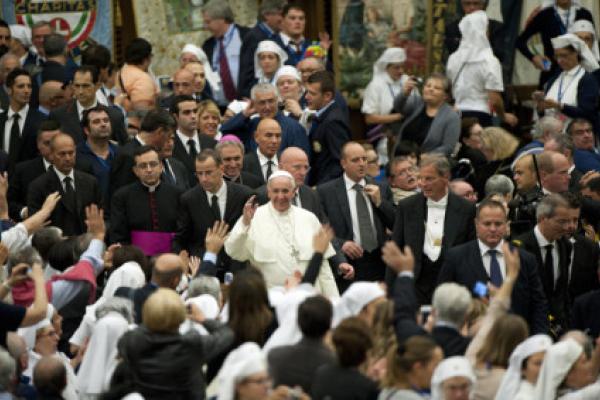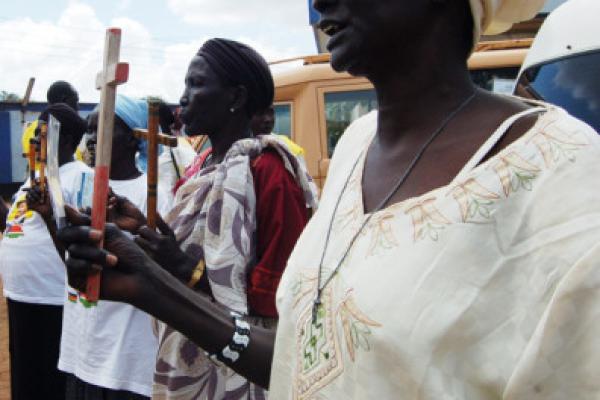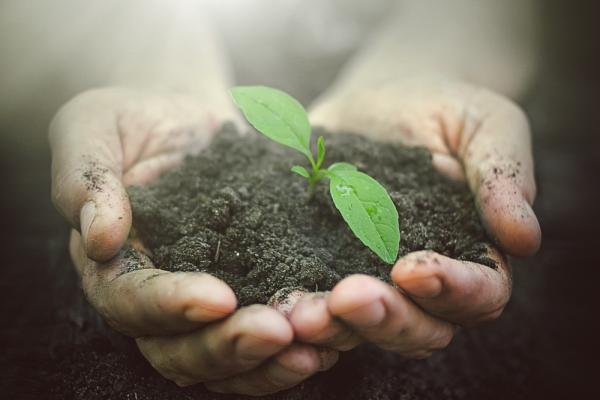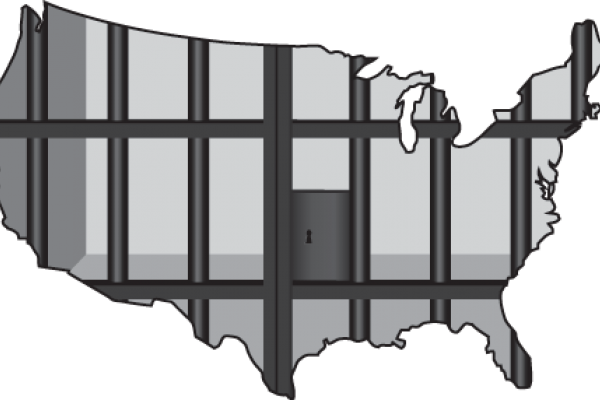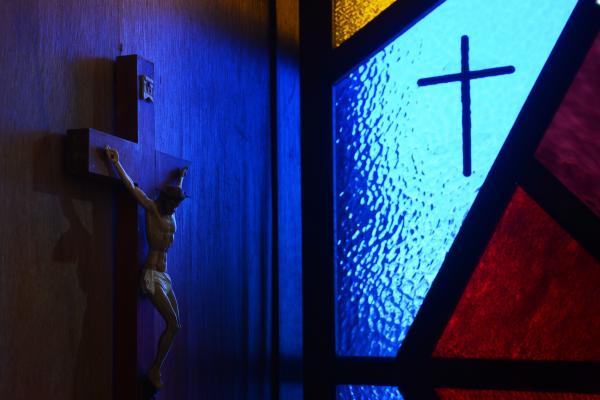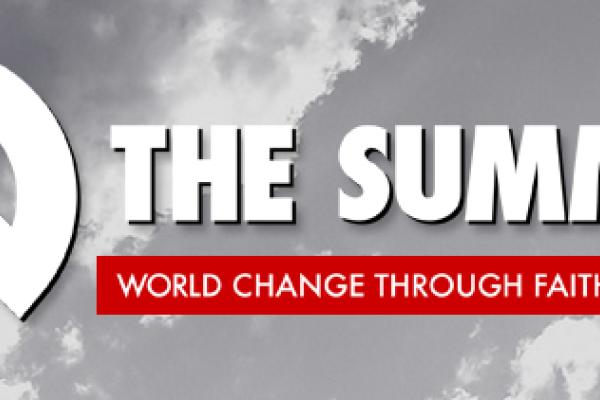The great rejoicing after the U.S. Supreme Court’s recent ruling on public prayer reminded me of the infamous line from an officer who commented on the destruction of a village during the Vietnam War: “We had to destroy the village in order to save it!”
There isn’t much to celebrate in the high court’s decision in Greece v. Galloway to allow sectarian prayers to be spoken in all kinds of public meetings. The big loser in this judicial decision was prayer itself — its uniqueness and its authenticity.
Pope Francis will be accompanied on his first visit to the Middle East by Argentine Rabbi Abraham Skorka and Muslim leader Omar Abboud — two friends from Buenos Aires.
“This dimension of interreligious dialogue has great significance,” the Vatican’s official spokesman, the Rev. Federico Lombardi, told the media.
Despite fevered speculation in the media and across Latin America, the Vatican says Pope Francis has not advanced slain Salvadoran Archbishop Oscar Romero toward sainthood — at least, not yet.
Pope John Paul II gave him the title “servant of God” in 1997 and the case for his canonization began. But the case stalled under the papacy of Benedict XVI over concerns that Romero was too close to the liberation theology that John Paul and Benedict spent years trying to repress.
Francis revived the cause soon after he was elected last year, and recent reports in several languages have suggested that church officials were poised to beatify Romero, putting him one step short of sainthood.
This week, Florida Gov. Rick Scott signed into law a measure widely touted as a “foreign law ban.” But proponents of such bans should not be too quick to claim victory.
This is a far cry from foreign law bans in states such as Kansas and Arizona, which demand their courts to reject foreign laws or judgments if they come from a country that does not protect rights in the identical way we do.
Sudanese Christians have condemned the sentencing of a Christian woman to death by hanging after she married a Christian man.
Meriam Yehya Ibrahim, 27, refused to recant her Christian faith as ordered by the court.
A doctor who is eight months pregnant and currently in detention with her 20-month-old son, Ibrahim was charged with adultery last year. Recently, the court added an apostasy charge when she declared her Christian faith in court.
“This is very disturbing,” said Roman Catholic Auxiliary Bishop Daniel Adwok of Khartoum.
My Dear Friend,
It breaks my heart to be the one to tell you this, but I figured you might be more receptive hearing this from me. I think you already know what I'm about to tell you — it's nearly impossible you couldn't know with how loud everyone's whispers have become.
Something is terribly wrong! You are sick.
I know this isn't the news you were hoping for, but it's the truth. With this in mind, I feel now, it is more important than ever that I lay things out for you — no matter how much it pains me.
Before selling illegal drugs, Dejarion Echols worked several years for a youth correctional agency and a psychiatric residential-treatment facility for teenagers. He decided to pursue a college education but couldn’t afford to be a full-time student. Desperate to make money, the unemployed, 23-year-old, engaged father of two sold crack cocaine for six months in 2004.
Any chance Dejarion had for a meaningful, productive life quickly ended. On a tip, police searched his home, found 44 grams of crack cocaine, $5,700, and an unloaded rifle. After pleading guilty, Dejarion received two mandatory 10-year sentences: one for the drugs, the other for the gun.
Dejarion admits he sold drugs. He denies the gun had been used in illegal-drug activity.
The presiding federal judge, Walter S. Smith, expressed frustration at having to impose such a sentence. “This is one of those situations where I’d like to see a congressman sitting before me,” he said, explaining that he was powerless to reduce it because of federal mandatory-minimum sentencing law.
Enacted by Congress decades ago, mandatory-minimum sentences have dramatically affected the federal criminal-justice system. Since 1980, the federal prison population has increased 800 percent , largely due to drug-related mandatory-minimum sentences. The federal system is the largest in the United States holding 217,000 prisoners, half of whom are incarcerated for a drug offense. Fewer than 8 percent of federal prisoners are incarcerated for a violent crime.
To a Dying Church,
Guess what? It’s not that bad.
You just have to get it together a bit.
Seriously, like yesterday. I mean, we have time. But, seriously, we’re all waiting for you to get it together.
You have the means. You have the ability. You have the know-how.
Actually, you don’t have to do that much. You just have to realize that Jesus has done it all and there is a current of immense possibility right under your feet.
Tap into it. Remember it. Root down.
This happens every so often. We are cyclical people. Every once in a while we forget.
But this time you’ve really done a doozy on your own health by chasing after insane supplements and growth hormones. And you’ve also picked some really lame fights. In the race to grow you’ve forgotten your way a bit and now you’re bloated and punch-drunk in the streets swinging at anyone that’ll ask a sensible question.
Stop it. You’re better than this.
To the dying church,
I think I missed the moment. It was a pretty big moment, too. At least here in the United States, you were a force to be reckoned with until a few years ago. You helped form the fabric of our society. Pastors were well-respected people of authority. They built great big sanctuaries, and people wore respectable clothing on Sunday mornings. To be fair, you didn’t — and don’t now — always live up to the hype. Sometimes you hide your head in the ground when it’s time to stand up against racism and homophobia. You’re still not so sure about the equality of women. You sometimes sell out to political agendas.
But regardless of the good and the bad, the moment is now over, and you’re dying. Or that’s what they tell me. All that power and influence is fading away. It sounds like some churches are having trouble even keeping the lights on. I know I should mourn for you, but allow me a moment of self-pity here too. What, you thought it was all about you?
You see, I’ve been getting ready for a few years now. A bunch of us have. Some of us have grown up with you, and some of us have just met you recently, but we’re all lining up to serve you. Somehow we all have this nagging sense that we’re supposed to be with you in these days, so some of us went to seminary and some went to college to learn youth ministry. We went to conferences and gave up our evenings and weekends to church basements with committees and youth groups. We read books and studied Scripture and prayed and imagined the kingdom of God breaking into the world through you. They call us emerging leaders, and we had a lot of hopes for you.
We’re trying something new at Sojourners, and I have to say, I’m excited about it. Like all new things, it is a work in progress, but even in its early stages, I’d like to share it with you and to ask for your help.
Over the course of any given year, I work with hundreds of leaders across the globe on issues affecting poverty, immigration, racial justice, women and girls, and the environment. They are academics, activists, nonprofit leaders, entrepreneurs, local pastors, and denominational leaders — but all of them care about changing the world through faith and justice. And over the course of the year, Sojourners' staff members meet hundreds more as they travel. Their work inspires us.
But here is the problem: Hundreds and hundreds of amazing people are doing fantastic work, but many of them don’t know each other. So, we started talking with each other, our board and the leaders we were working with about building a gathering focused on inspiration, collaboration, and relationships. We are pleased to announce the first of what we hope will be many of these gatherings: The Summit: World Change Through Faith and Justice.
From June 18-21, at Georgetown University, 300 leaders will gather for this inaugural event. This is where we need your help ...
We want you to help us find 50 of them.

